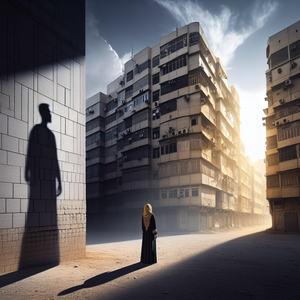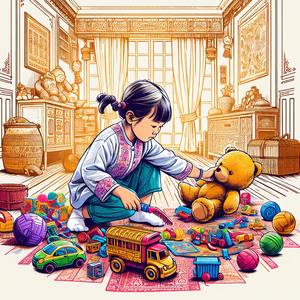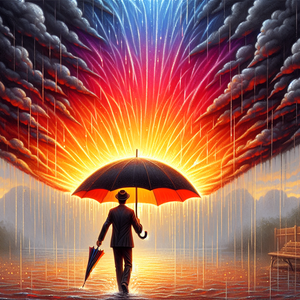The Rise of Boston's Indie Game Revolution

Boston’s indie game scene is characterized by a diverse array of developers who are pushing the boundaries of creativity and gameplay. From small studios to solo developers, these creators are driven by passion and a desire to tell unique stories through their games. Notable developers such as graduates from the DigiPen Institute of Technology, local studios like Fire Hose Games, and Tale of Tales have made significant contributions to the indie landscape, garnering attention both nationally and internationally. One standout example is Nidhogg, developed by Markus "Notch" Persson’s studio, which emphasizes competitive play in a fast-paced multiplayer setting. This game has gained a cult following thanks to its minimalist aesthetics and engaging mechanics, showcasing how Boston’s indie developers are redefining gaming experiences. Through its innovative design, Nidhogg has not only entertained players but has also sparked conversations about the future of competitive gaming.
Key Developers and Unique Concepts
The success of Boston's indie game scene can be attributed to several key developers who have embraced innovation and creativity. Dejobaan Games, known for its unique titles like AaaaaAAaaaAAAaaAAAAaAAAAA!!! - A Reckless Disregard for Gravity, has captured the imagination of players with its quirky concepts and engaging gameplay. The studio's commitment to pushing the envelope in game design reflects the broader ethos of the Boston indie community. Its playful approach to gravity and risk-taking has set a precedent for what indie games can achieve. Furthermore, the influence of local culture cannot be overstated. Boston's rich history, vibrant arts scene, and academic institutions foster an environment ripe for creativity. Developers often draw inspiration from their surroundings, infusing their games with local flavor. For instance, the game The Black Watchmen incorporates elements of Boston's history and urban landscape, creating an immersive experience that resonates with players. This connection to local culture not only enriches the gameplay but also fosters a sense of community among players and developers alike.
Local Events and Community Support
The indie game revolution in Boston is also fueled by a strong sense of community and support from various organizations and events. Local meetups, game jams, and festivals, such as the Boston Festival of Indie Games, provide platforms for developers to showcase their work and connect with fellow creators. These gatherings not only foster collaboration but also encourage the sharing of ideas and resources, allowing developers to learn from each other and grow together. Moreover, institutions like MIT’s Game Lab and Northeastern University play a crucial role in nurturing emerging talent. They offer programs and workshops that equip aspiring developers with the skills needed to thrive in the industry. The synergy between academia and the indie scene amplifies Boston's reputation as a breeding ground for innovation. The collaborative environment fosters a sense of belonging, encouraging young developers to explore their creativity without fear of failure.
The rise of Boston's indie game revolution stands as a testament to the city's vibrant culture, creativity, and collaborative spirit. With a diverse array of developers pushing the boundaries of game design, unique concepts that reflect local influences, and a supportive community that encourages innovation, Boston is poised to become a significant player in the global indie game market. As the industry continues to evolve, the stories and experiences emerging from Boston's indie scene will undoubtedly captivate players and inspire future generations of game developers. The future looks bright for Boston's indie game revolution, and we can expect to see even more groundbreaking titles emerge from this dynamic city. With its unique blend of talent, culture, and community support, Boston stands as a beacon for indie game development, proving that creativity knows no bounds.
Indie Game Designer
Dejobaan Games, Fire Hose Games
Core Responsibilities
Conceptualize and design game mechanics, levels, and user interfaces that enhance player engagement.
Collaborate with artists and programmers to ensure cohesive gameplay experiences and visual aesthetics.
Conduct playtesting to gather feedback and iterate on game design elements to improve overall quality.
Required Skills
Proficiency in game design software (e.g., Unity, Unreal Engine) and tools like Photoshop or Illustrator.
Strong understanding of game theory, mechanics, and player psychology.
Excellent communication skills to work effectively in a collaborative environment.
Game Programmer (Gameplay)
Indie game studios, tech startups in the gaming sector
Core Responsibilities
Write clean, efficient code to implement game features, mechanics, and systems that drive gameplay.
Collaborate with designers to translate game design concepts into functional code.
Debug and optimize gameplay code to enhance performance and ensure a smooth player experience.
Required Skills
Strong knowledge of C# or C++ and experience with game engines like Unity or Unreal Engine.
Familiarity with gameplay programming patterns and best practices.
Problem-solving mindset with a passion for gaming.
3D Game Artist
Indie studios, game development workshops
Core Responsibilities
Create high-quality 3D models, textures, and animations that align with the game’s artistic vision.
Collaborate with the design and programming teams to ensure assets are optimized for performance.
Participate in art reviews and provide constructive feedback to team members.
Required Skills
Proficiency in 3D modeling software (e.g., Blender, Maya) and texturing tools (e.g., Substance Painter).
Strong understanding of animation principles and experience with rigging.
Ability to adapt to various art styles and maintain consistency within the game.
Sound Designer for Games
Indie game studios, freelance projects, sound design firms
Core Responsibilities
Create and implement sound effects, music, and voiceovers that enhance the game’s atmosphere and storytelling.
Collaborate with game designers and developers to ensure audio aligns with gameplay and user experience.
Conduct audio testing and make adjustments based on feedback to achieve the desired impact.
Required Skills
Proficiency in audio editing software (e.g., Pro Tools, Logic Pro) and sound design tools.
Strong understanding of audio principles and techniques specific to interactive media.
Creativity and ability to work under tight deadlines, often with limited resources.
Marketing Manager for Indie Games
Indie game studios, game marketing agencies, gaming festivals
Core Responsibilities
Develop and execute marketing strategies to promote indie games across various platforms, including social media, gaming conventions, and publications.
Analyze market trends and player feedback to inform marketing decisions and campaign direction.
Collaborate with developers to create compelling content that resonates with the target audience and builds community engagement.
Required Skills
Strong understanding of digital marketing tools and platforms (e.g., Google Analytics, social media advertising).
Excellent communication and storytelling skills to articulate the game’s vision and engage potential players.
Experience in community management and building relationships within the gaming industry.


